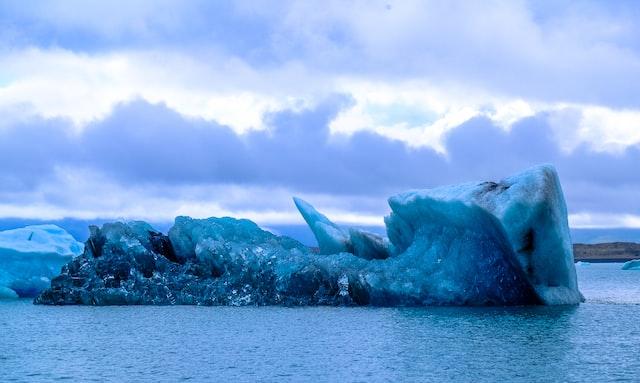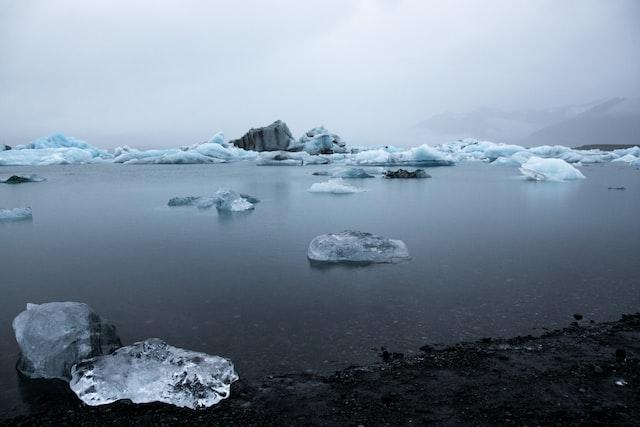
Do you know the water’s freezing point? Is the freezing point equal to or lower than the melting point?
Here’s a look at the temperature of the freezing point, as well as factors that influence it and whether it’s similar to the melting point.
The freezing point is the liquid’s transformation into a solid, while the melting point defines water’s temperature when shifting from a solid (ice) to its liquid state.
In an ideal scenario, both temperatures would match up; however, liquids can sometimes be supercooled well below their freezing points without turning into solids.
What is the freezing point?
The freezing point is the temperature at which a liquid turns into a solid. The freezing point is also known as the crystallization point. This process is called freezing or solidification.
When a liquid freezes, its molecules stop moving around freely and instead arrange themselves in a fixed pattern.
The molecules in a solid are usually much closer together than the molecules in a liquid.
The temperature at which a particular substance freeze depends on the strength of the forces that hold its molecules together.
Read also: Do Short People Live Longer
What is the freezing point of water?
The freezing point of water is the temperature at which water changes from a liquid to a solid. At standard atmospheric pressure, water freezes at a temperature of 0 degrees Celsius (32 degrees Fahrenheit).
However, the freezing point of water decreases with increasing altitude. For example, at an altitude of 5,000 meters (about 16,400 feet), water freezes at a temperature of -10 degrees Celsius (14 degrees Fahrenheit).
The freezing point of water also varies depending on the amount of impurities present.
For example, saltwater freezes at a lower temperature than pure water. In addition, the freezing point of water can be affected by outside influences such as pressure and magnetic fields.
These factors can cause the freezing point of water to either increase or decrease.
Read also: Do Identical Twins Have the Same Fingerprints
What is the boiling and freezing point of water?
The boiling point of water is the temperature at which water changes from a liquid to a gas. The boiling point of water is 100 degrees Celsius (212 degrees Fahrenheit).
The freezing point of water is the temperature at which water changes from a liquid to a solid. The freezing point of water is 0 degrees Celsius (32 degrees Fahrenheit).
The boiling point of water is higher than the freezing point because it takes more energy to break the bonds between the molecules in a gas than it does to break the bonds between the molecules in a liquid.
When water boils, the molecules move apart and become less dense, making it easier for them to escape into the atmosphere.
Read also: How Many Calories Are in a Glass of Milk

Can pure water freeze?
Yes, pure water can freeze.
The freezing point of water is the temperature at which water changes from a liquid to a solid. The freezing point of water is 0 degrees Celsius (32 degrees Fahrenheit).
However, the freezing point of water decreases with increasing altitude.
For example, at an altitude of 5,000 meters (about 16,400 feet), water freezes at a temperature of -10 degrees Celsius (14 degrees Fahrenheit).
The freezing point of water also varies depending on the amount of impurities present. For example, saltwater freezes at a lower temperature than pure water. I
n addition, the freezing point of water can be affected by outside influences such as pressure and magnetic fields. These factors can cause the freezing point of water to either increase or decrease.
Read also: What Muscles Do Shoulder Shrugs Work
Can running water freeze?
Although it may seem counterintuitive, running water can indeed freeze. This phenomenon is known as supercooling, and it occurs when water is cooled below its freezing point without crystallizing.
However, once the water molecules reach a certain level of excitement, they will spontaneously form ice crystals.
In order for supercooling to occur, the water must be very pure and free of impurities, as these can act as nucleation sites for ice crystal formation.
Additionally, the water must be protected from turbulence, as this can also trigger crystallization.
Once these conditions are met, the water can be cooled to well below freezing without freezing solid.
However, it is important to note that supercooled water is extremely fragile, and even a small disturbance can cause it to freeze suddenly.
As a result, great care must be taken when handling supercooled water.
Read also: Do Condoms Expire
What liquids cannot freeze?
There are a few liquids that cannot freeze, even at very low temperatures. These liquids are known as supercooled liquids, and they exist in a state between liquid and solid.
Supercooled liquids have molecules that are in constant motion, and this prevents them from aligning into the orderly structure of a solid.
Even at extremely low temperatures, the molecules in a supercooled liquid are unable to overcome their kinetic energy and form the static structure of a solid.
Instead, they remain in a liquid state, even though they are well below the freezing point. Some common examples of supercooled liquids include water, ethanol, and propylene glycol.
Read also: Can Black Mold Kill You
Final words
The freezing point of water is the temperature at which water turns from a liquid to a solid. The freezing point of water is 32 degrees Fahrenheit.
Water freezes at this temperature because the molecules of water are arranged in a crystalline structure. When water freezes, the molecules of water expand and take up more space.
This expansion causes the water to become less dense, and the ice floats on the surface of the water.
The freezing point of water is important because it determines the temperature at which lakes and rivers freeze. It also determines the temperature at which food can be stored safely.
The freezing point of water is an important part of many scientific calculations and experiments.



